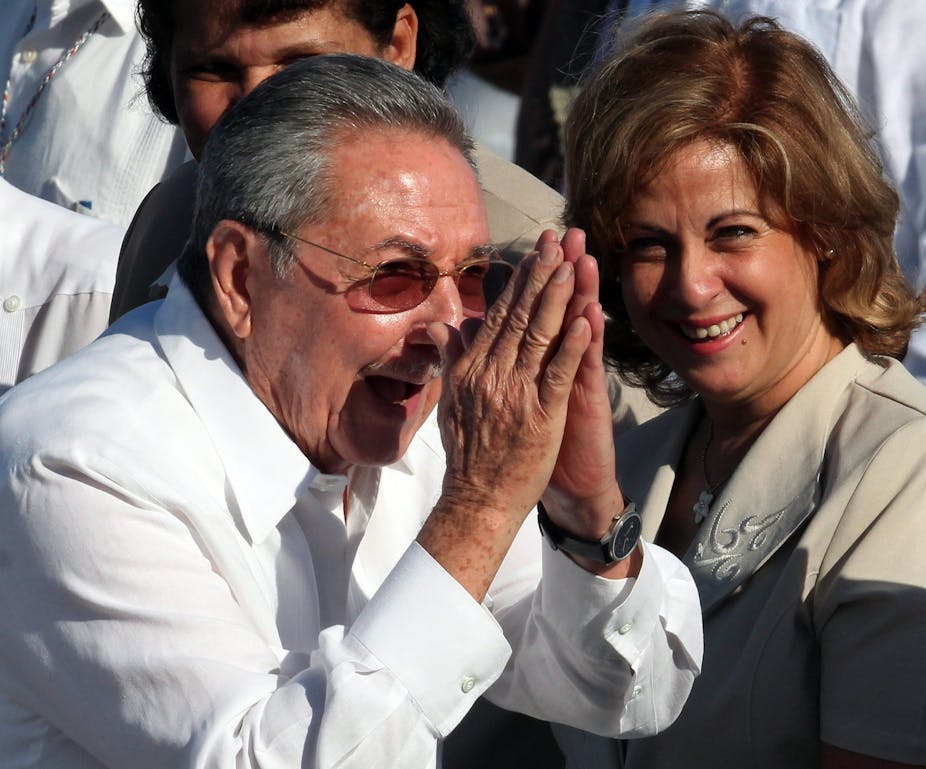Dashing the opposition’s hopes, Pope Benedict XVI’s visit to Cuba last month ended up resembling that of his predecessor John Paul II fourteen years prior. The island’s leaders emerged from both visits unscathed, and surely appreciated Benedict’s denunciation of global capitalism’s “profound spiritual and moral crisis, which has left humanity devoid of values and defenceless before the ambition and selfishness of certain powers”.
Not surprisingly, those hoping for papal condemnation of Cuban communism, such as US Republican congressman Mario Diaz-Balart, were “exceedingly disappointed” with the pontiff’s single diplomatic reference to “those who are deprived of freedom”.
The Pope’s discretion was logical considering the pace of Cuba’s current reforms. The state is gradually relieving itself of half a million employees and legalising the private sale of houses and cars. Although the 313 Social and Economic Policy Guidelines published in 2011 prohibit the “concentration” of private property, they show acceptance of market forces to “complement” Cuba’s state-managed system of trade and investment.
Critics of the reforms believe that “nothing much will change”, and that Cuba’s commitment to “updating the socialist system” is a justification for maintaining the 50-year-old status quo. Others, such as Collin Laverty, view the Cuban government’s tentative steps to unleash the market as “a significant realignment of the paternalistic relationship that has existed between the state and its citizenry since the revolutionary period began in 1959”.
The global financial crisis intensified the need for reform in Cuba, transmitting its impact through the island’s sensitivity to foreign credit, export earnings (particularly from nickel), remittances, and tourism. The evaporation of hard currency, coupled with spikes in food and oil prices in 2008 and 2011, provoked Cuba to deepen reforms first implemented during the post-Soviet crisis of the mid 1990s. Similar to China, the goal appears to be a mixed economy, in which citizens follow their entrepreneurial dreams while generating tax revenue under the “supreme guidance of the state”.
Raúl Castro has taken a page out of Deng Xiaoping’s book, much more so than did his older brother and predecessor Fidel. Among the insights derived from China — with varying degrees of attentiveness — are the gradual introduction of reforms under a state-appointed “Permanent Commission for Implementation and Development”, military management of commercial activities, coordinated upgrading of industrial sectors, trialing of reforms in target territories prior to wider implementation, and a more conciliatory approach to emigrants capable of providing much-needed investment.
State-to-state cooperation with China has enabled Cuba to develop industrial infrastructure, biomedicine, transport and logistics and, in 2011, the First Five-Year Plan for Sino-Cuban Cooperation. Among the initiatives under negotiation are Chinese investments in Cuban oil and gas, expansion of education exchange programs (which currently accommodate some 100 Cuban and 2,000 Chinese students), and assembly of low-cost televisions, air conditioners, and kitchen appliances.
Other proposals include direct China Air flights between Havana and Beijing, and credits and loans for Cuba’s emerging market economy. China has become the island’s second largest trading partner after Venezuela, with annual bilateral trade reaching $1.83 billion in 2010 (down from a pre-GFC high of $2.27 billion in 2008, and up from just $314 million in 2000).
How far Cuba’s reforms will go, and the extent to which they accommodate China’s “lessons”, remains to be seen. The aspirations of Cuban people to fill more sophisticated jobs may ultimately test their willingness to follow China’s lead.
The low-skilled manufacturing that has provided the basis for China’s remarkable growth may prove to be at odds with these aspirations, for as Cuban anthropologist Yenisel Rodríguez writes: “We are not so economically desperate that a maquiladora can bring us the taste of liberation.”
If the limits on private property expressed in the Social and Economic Policy Guidelines are anything to go by, Foxconn, Walmart, and other mass-producing enterprises will have no place in Cuba in the foreseeable future. It is a message Fidel Castro could have told them, but then again, so could the Pope.

